Questions from my latest podcast:
-How many forms of authentic bhakti are there?
There are unlimited forms of bhakti, as bhakti is the manifestation of love for Krishna.
In the tradition coming from the Vedic times there are 4 lineages
Brahma - I am in this lineage, coming through Srila Prabhupada
Shiva
Kumaras
Sri
-Who was the 500 yr old renunciate?
I was referring to Sri Chaitanya. He wasn’t 500 years old, He lived around 500 years ago in Bengal India. He was a great philosopher, a great reformer by giving all people equal access to bhakti, and he was himself a great devotee. The secret of his existence is that he is Krishna in an undercover, hidden form, come to spread bhakti, and practice it too.
-Have you practiced Chutunya Yoga? (Guessed on spelling lol)
I have never heard of this path called Chaitanya-Yoga, but it’s such a beautiful description of this form of bhakti, I will call it that moving forward! Chaitanya-yoga is chanting “Hare Krishna, Hare Krishna…” studying the bhakti books like Bhagavad-Gita and Srimad Bhagavatam, making friends with the devotees, making offerings to Krishna, and visiting holy places. So essentially we are all practicing Chaitanya-yoga!
-How to spell Chutunya?
Chaitanya. This is short for Sri Chaitanya Mahaprabhu. Chaitanya is his renunciation name, his birth name Vishvambar, Nimai for short.
-Why is the area of reason in humans considered incompetent when we have free will in which to make higher decisions of competency overall?
The area of reason is faulty because the spirit soul uses the material mind and brain, mixed with perceptions and desires to come to philosophical conclusions. But when the soul, inhabiting the material body, studies spiritual knowledge, the material mind fades, the desires fade, and the soul awakens from its material sleep and becomes the primary source of realization.
-Should we memorize the 9 principal doctrines of The Vedas?
It’s not necessary
-Why only certain souls engrossed by bhakti?
From the Vedic perspective the whole entire creation of God is made up of mostly spiritual universes full of souls fully engrossed in bhakti. This is the natural universe for the soul. This material universe, the universe we are in, only makes up a very small part of the overall creation. This material universe is for souls to live, purposely engrossed in materialism, purposefully ignorant of the greater universe. So for a soul to wake-up and realize the self and God in this material universe is very rare.
-Why only certain souls released from the grasp of prakrite?
Krishna actively convinces the conditioned souls to abandon this material world and go back to his place. It’s only the fortunate, intelligent souls that can understand this and take up the path of bhakti. It is said that those souls have been blessed by Krishna’s devotees.
-Are we not equal as souls from this standpoint?
All souls are equal. Some desire to be released from illusion, where others do not.
Why does "he" claim ownership of souls?
Krishna and the spirit soul is simultaneously one and different. Krishna is the source of all things, material and spiritual. I am not sure Krishna states a specific claim over souls. Souls are independent and have free will, but act within Krishna, as everything is Krishna.
-What does it mean when it says Krishna is the final objective?
The embodied soul in the material universe are very busy trying to satisfy the desires of the mind and the heart. But this path is very temporary and ultimately unsatisfactory. Krishna is the final objective because the nature of the soul is God. We are naturally part of God, Krishna and the universe of God is our natural home. So the end goal of all souls is to attain Krishna and return to our natural existence.
Is there a list of behaviors, worship, and lifestyle you're supposed to live in regarding Krishna? Or is acknowledgment as a part of The Eternal Divine Being enough?
There are many Bhakti traditions, and they all have their flavors of lifestyles and behaviors. The letter of the law is not as important as the spirit of the law. And the spirit of bhakti behaviour and worship is cleanliness, purity and love. Worship in sanskrit is called bhajan, and that can also be translated as love or adoration.
-Which of the 2 ideas is better to follow?
Sorry I don’t understand the question
-What's "spiritual ecstatic energy"?
spiritual ecstatic energy may refer to a few things. Context is important. It could be the constitutional make up of the soul, ananda. This is the characteristic of spirit. Or this could refer to the feeling of ecstatic spiritual energy, or the resultant manifestation of feeling from deep spiritual activity as people experience with kirtan.
-Cannot the "material senses of men approach him" through that of a "heart flutter" or a warmth in the arms/hands? (It's a spiritual and soul-based sensation manifesting as a physical sensation?)
Again context is important, but yes, the soul uses the temporary material body as a tool, a vehicle to the external world, so spiritual sensations will bubble up to the senses from the soul.
- If we as humans can only "see it with our spirit" then what exactly are we "seeing through?"
“seeing” in this context is not a visual, but a revelation, a realization, an understanding, a clarity of heart.
-Do we see it through our humanness? Are we seeing it through ego lenses?
Yes, the soul is covered by the mind, and the ego. Our vision of the world and ourselves is confused by these temporary, matter based designations. Part of the process of yoga, is to connect to the divine source, which means disconnect from the illusion of materialism. It happens naturally through the process of yoga study, and heartfelt meditation. This is what we call Bhakti-yoga!

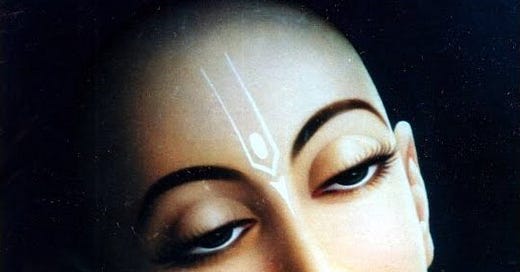





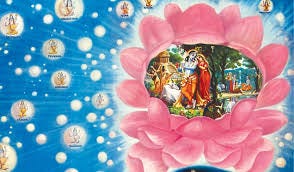
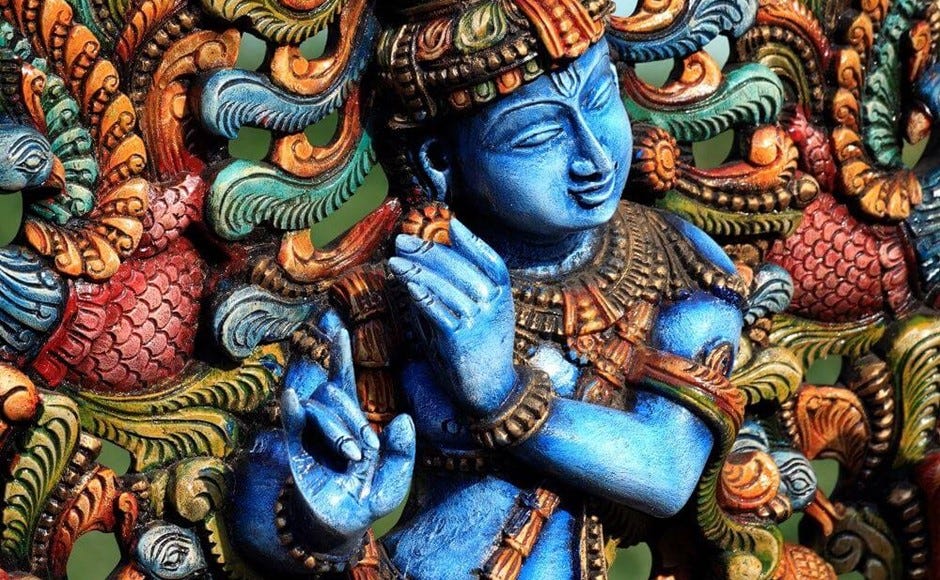
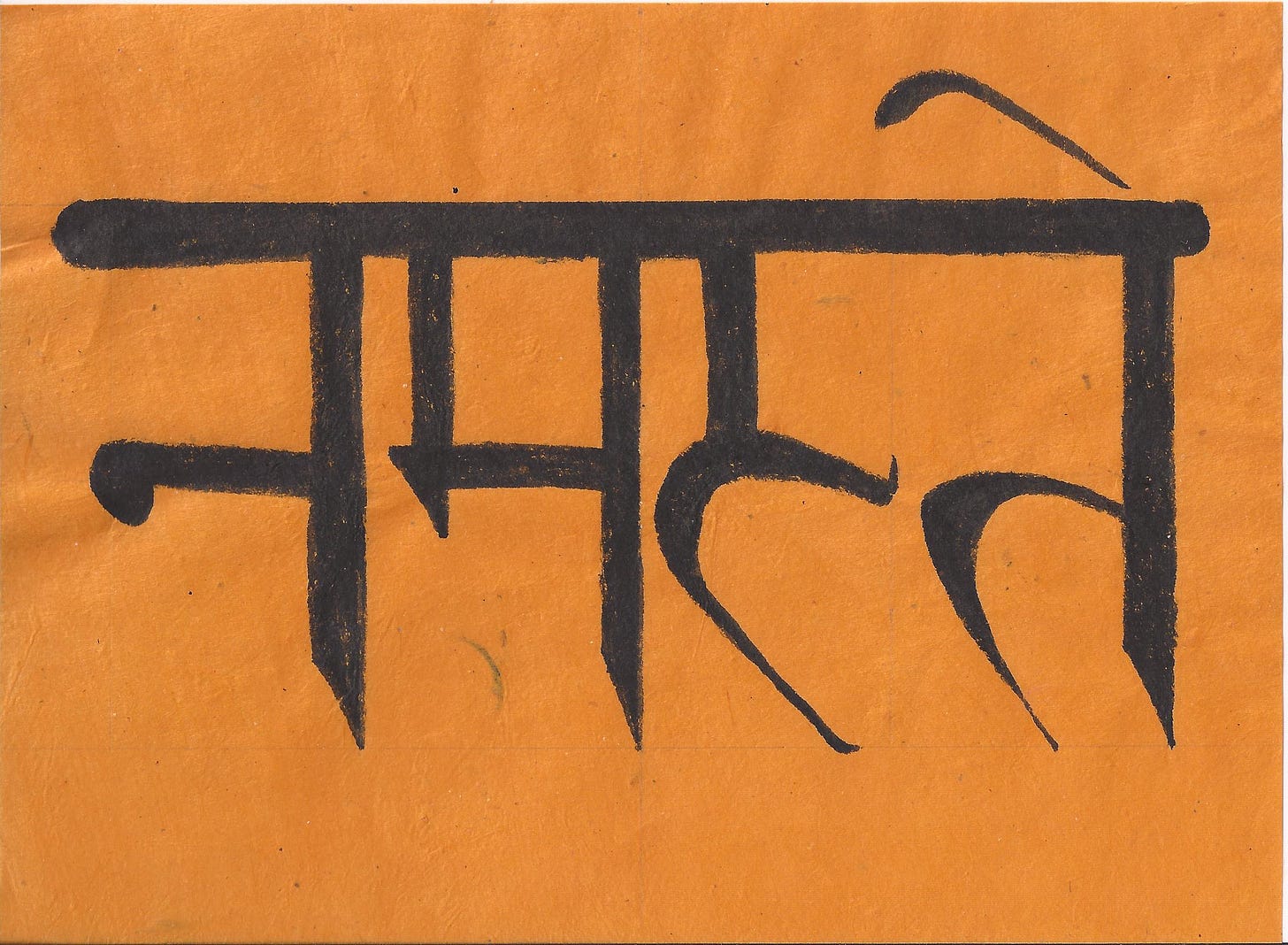





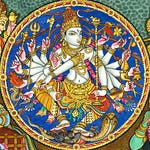
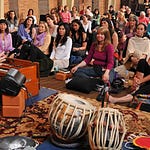

Share this post